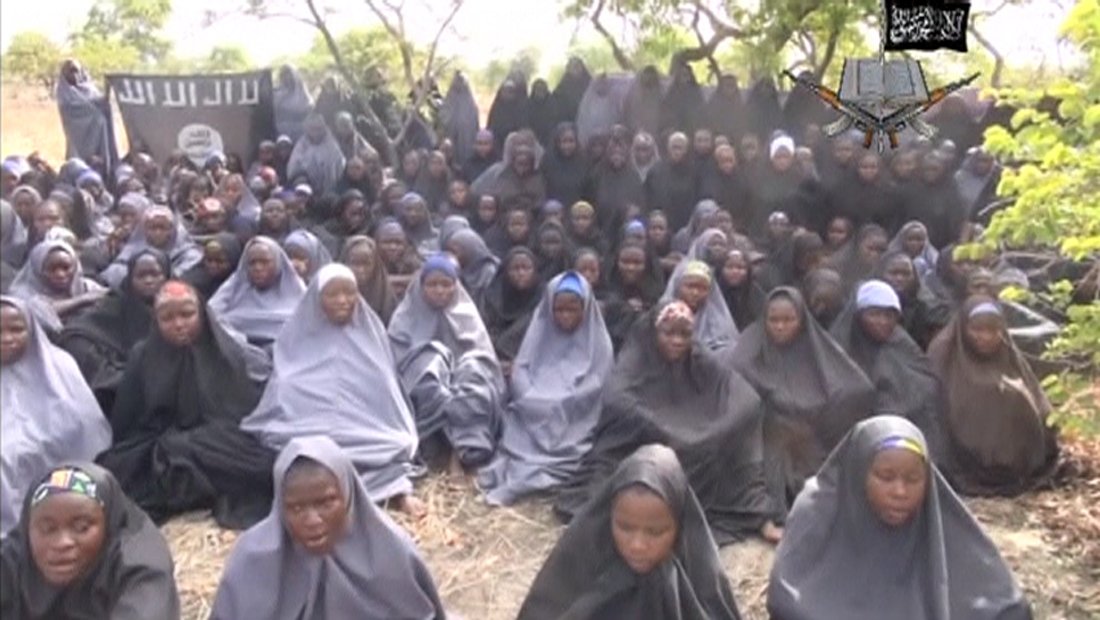
The social media campaign, #BringBackOurGirls, has built worldwide pressure to find and rescue the more than 200 school girls abducted nearly a month ago by the Nigerian terrorist group, Boko Haram. But just how far should the U.S. go in the hunt for them?
President Barack Obama has sent in an intelligence, logistics and communications team that includes 16 military personnel. On Monday, National Security Council and Pentagon officials told TIME that that the U.S. has begun sharing commercial satellite imagery with the Nigerians and is flying manned aircraft over Nigeria with the government’s permission for intelligence purposes.
The top ranking Senators on the Intelligence Committee, Dianne Feinstein (D-Calif.) and Saxby Chambliss (R-Ga.) told TIME that they would support sending in special forces under certain conditions: Feinstein would send in the additional assistance only if Nigeria requests it, and Chambliss would do so with our allies.
Retired General Chuck Wald, former deputy commander of the U.S. European Command, said that America would need to send “several hundred” Special Operations troops “to get it done right.”
“You’d have to do some work on intelligence, you’d have to prep the battlefield [and] you’d have to have the ability from the Nigerians to move with some freedom,” said Wald. “It’s not going to be easy, but given the mission I’m sure they could do something.”
One problem that Wald laid out is that the terrorist group has reportedly split off the schoolgirls into smaller groups. “This is going to take awhile,” he said.
On Sunday, Secretary of Defense Chuck Hagel told ABC’s This Week that there’s “no intention” of putting boots on the ground, but “we’re going to bring to bear every asset we can possibly use” to help the Nigerian government.
“The Nigerians are the ones who understand the terrain, they understand the people, they understand all the subtleties,” said Col. Steven Warren, a top Pentagon spokesman, about why the Department of Defense has not yet considered a special forces-type rescue mission. “It’s their backyard. They are the ones best positioned to conduct an operation to try and locate these people…[It] is the technical piece that we’re best available to provide here.”
Another Pentagon official told TIME that the Nigerians had yet to ask for boots on the ground to help the search, which is a particular problem for Feinstein, the Chairwoman of the Senate Intelligence Committee, and Chambliss, the ranking Republican.
“I don’t know what we do if the government doesn’t want help, and they have been reluctant to ask for help,” said Feinstein. “The people of Nigeria should have a say in that and if they want their government to ask for help, they have to make that known.”
Last week, Amnesty International reported that the Nigerian military may not be as strong as the U.S. government has portrayed them publicly, finding that it declined to provide assistance to the schoolgirls despite at least four hours of advanced warning “due to poor resources and a reported fear of engaging.”
“This business of ‘fear of engaging,’ what do you have a military for if not to engage when your country is being attacked,” demanded Feinstein. “I would say that Boko Haram is attacking the people of the country. The army is there to defend the people, not to allow kidnapping of young girls, not to allow schools to burned down.”
“The Nigerians ought to be handling things in their own backyard, but frankly it’s a big vast country with a bunch of bad guys acting like cowboys and running around,” said Chambliss. “They can’t handle it. I think that’s why we’re treading very carefully, but we’ve got to be more forceful than what we’ve been thus far.”
Of course, even U.S. special forces may not bring the girls back. In 2011, the Pentagon sent 100 special forces troops to help thousands of African troops search for Joseph Kony, leader of the Lord’s Resistance Army, but have yet to capture or kill the warlord. Top LRA commanders have been taken out, however, and LRA attacks have drastically decreased. This year the Pentagon announced it would send in 150 more troops as well as CV-22 Osprey aircraft, and the United Nations has signaled that they are finally zeroing in on his whereabouts.
Chambliss believes our current intelligence assistance to Nigeria is “not good enough” and “not even a token.” But despite “great confidence” in the American military, even Chambliss is suspect that U.S. special forces could find a safe return for the abducted girls.
“Right now we just don’t the answer to that question,” said Chambliss. “We know it’s going to be difficult. The question is how do we do it…but I think we certainly have the capability of doing it.”
With reporting by Zeke J. Miller
More Must-Reads from TIME
- Donald Trump Is TIME's 2024 Person of the Year
- Why We Chose Trump as Person of the Year
- Is Intermittent Fasting Good or Bad for You?
- The 100 Must-Read Books of 2024
- The 20 Best Christmas TV Episodes
- Column: If Optimism Feels Ridiculous Now, Try Hope
- The Future of Climate Action Is Trade Policy
- Merle Bombardieri Is Helping People Make the Baby Decision
Contact us at letters@time.com